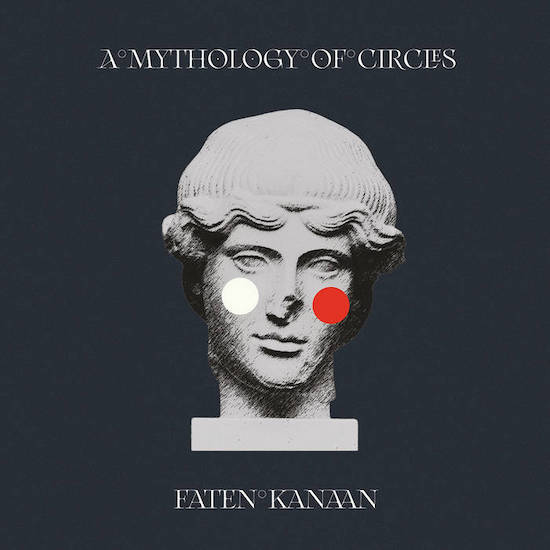As we head into what feels like an especially long and bitter winter, Faten Kanaan’s fourth LP offers an eerie rumination on the cycles of nature. A Mythology Of Circles isn’t a radical reinvention for the Brooklyn-based composer, but it is a significant leap forward in her craft.
The palette is much the same as on previous albums – elegantly-played synthesizer parts, rumbling bass and beautiful, brittle melodies – but there’s a stronger sense of cohesion here, of a cryptic narrative teased throughout the tracks.
As with 2018’s Foxes, Kanaan abstains from singing, but the human voice is present in the wordless sampled choirs that open the album and recur throughout. Combined with the sleeve art (all blankly-staring CGI statues) and video-clips of frozen landscapes, there’s an uncanny valley quality to the record. It would be a stretch to suggest that it’s about climate change, but Kanaan has conjured the impression of a world that’s either post-human or where we are no longer the dominant species.
Despite that, the music has a real intimacy and warmth. The lulling, nocturnal drift of ‘The Archer’ gives way to an unexpected and beautifully crystalline arpeggio in its closing moments. It’s like looking up on a winter’s night and catching a glimpse of a shooting star. ‘Night Tide / Anteros’ starts as an ambient mood piece, then adds layers of melody until it ends up somewhere close to Bowie’s ‘Moss Garden’. ‘Birds of Myrrh’ is weirdly funny, with an annoyingly catchy synth flute part. And closing track ‘Ishtar Terra’ is all gently lilting pianos, ending the album on a note of muted reflection.
As the title and the seasonal theme suggests, most of the music here is built on cycles and repetition, with many of the tracks feeling like gradually evolving (or mutating) loops. ‘Erewhon’ has a medieval music box quality, while ‘The North Wind’ is a simple, repeating keyboard part over a bassline that degrades into television static – its thrilling and quietly grandiose.
A beautiful and strange record then, one which recalls both Roger Limb’s equally wintry radiophonic score to The Box Of Delights and the cursed Windows XP vibe of Oneohtrix Point Never’s R Plus Seven. But what makes it truly stand out is its remarkable sense of mystery, the occulted significance in its references to cosmology and greek myth. I’ve lived with A Mythology Of Circles for more than a month now, played it most days and I’m still finding unexpected nuances and evocations. It soothes and intrigues in equal measure.


